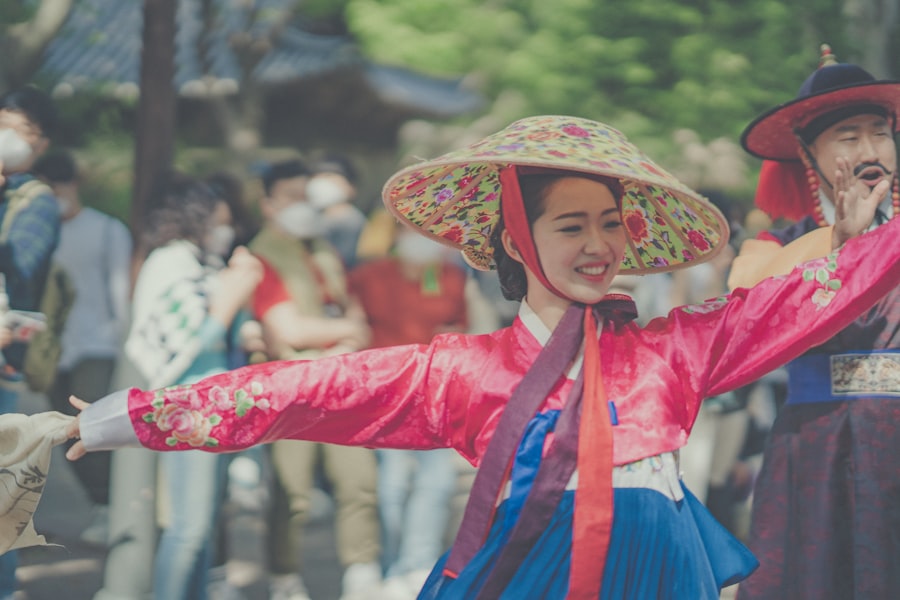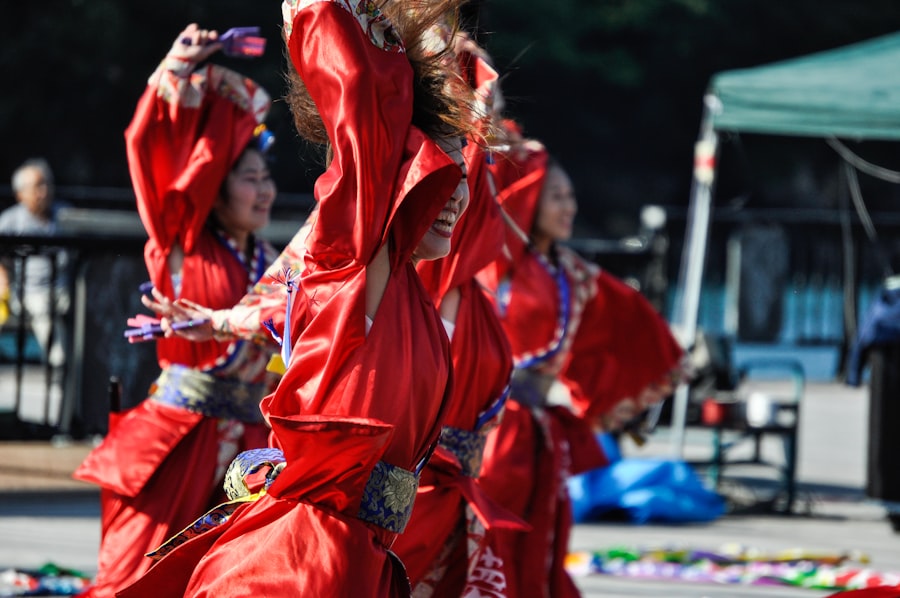To truly appreciate the richness of Indigenous cultures, you must first immerse yourself in their history and traditions. These cultures are not monolithic; they vary widely across different regions and tribes, each with its own unique practices, languages, and worldviews. By taking the time to learn about their stories, you can gain a deeper understanding of their connection to the land and the significance of their customs.
This knowledge will not only enrich your experience but also foster a sense of respect and appreciation for the people you encounter. Indigenous cultures often emphasize a profound relationship with nature, viewing the land as a living entity rather than a mere resource. This perspective shapes their spiritual beliefs, social structures, and daily practices.
As you delve into their narratives, you may discover how these communities have adapted to changing environments while maintaining their cultural integrity. Engaging with Indigenous literature, art, and oral histories can provide valuable insights into their worldview, allowing you to approach your journey with an open heart and mind.
Key Takeaways
- Indigenous cultures are diverse and unique, with deep connections to the land and nature.
- When choosing a cultural immersion stay, consider the community’s values, sustainability practices, and commitment to preserving their traditions.
- Respect local customs and traditions, seek permission before taking photos, and be mindful of your impact on the environment.
- Traditional indigenous cuisine often incorporates locally sourced ingredients and cooking methods passed down through generations.
- Participating in indigenous traditions and rituals can provide a deeper understanding of the community’s beliefs and way of life.
Choosing the Right Cultural Immersion Stay
Selecting the right cultural immersion stay is crucial for a meaningful experience. You should seek out accommodations that are owned and operated by Indigenous people, as this ensures that your visit directly benefits the community. Look for lodges, homestays, or eco-tourism initiatives that prioritize cultural education and sustainability.
By choosing these options, you not only support local economies but also gain authentic insights into daily life and traditions. When researching potential stays, consider what aspects of Indigenous culture resonate with you most. Are you interested in learning about traditional crafts, participating in ceremonies, or exploring the natural environment?
Each community offers unique opportunities for engagement, so take the time to explore various options. Reading reviews and testimonials from previous visitors can also help you gauge the authenticity of the experience and the level of cultural sensitivity practiced by the hosts.
Etiquette and Respect in Indigenous Villages

As you prepare for your visit to an Indigenous village, understanding etiquette is essential. Respect is paramount; it is vital to approach every interaction with humility and an open mind. Before entering sacred spaces or participating in ceremonies, always seek permission and be mindful of local customs.
This demonstrates your willingness to honor their traditions and fosters a sense of trust between you and the community. Additionally, be aware of your behavior and language. Avoid making assumptions or generalizations about Indigenous cultures, as this can perpetuate stereotypes.
Instead, engage in active listening and ask questions when appropriate. This not only shows your genuine interest but also allows for meaningful exchanges that can deepen your understanding of their way of life. Remember that you are a guest in their home; treating their culture with reverence will enhance your experience and create lasting connections.
Traditional Indigenous Cuisine and Cooking
| Indigenous Dish | Main Ingredients | Cooking Method |
|---|---|---|
| Frybread | Flour, water, salt, and oil | Deep-fried |
| Bannock | Flour, baking powder, salt, and water | Baked or fried |
| Pemmican | Dried meat, fat, and berries | Mixed and shaped into cakes |
| Frybread Tacos | Frybread, ground meat, lettuce, cheese, and salsa | Assembled and served as a taco |
Exploring traditional Indigenous cuisine is a delightful way to connect with the culture on a sensory level. Food is often at the heart of community gatherings and celebrations, reflecting the land’s bounty and the people’s relationship with it. As you partake in meals prepared by Indigenous cooks, you will likely encounter ingredients that are native to the region, such as wild game, fish, berries, and various herbs.
Each dish tells a story of survival, adaptation, and cultural heritage. Consider participating in cooking classes or food tours that focus on traditional methods of preparation. This hands-on experience allows you to learn about the significance of each ingredient while honing your culinary skills.
You may discover how certain dishes are tied to seasonal changes or specific rituals, deepening your appreciation for the food you consume. Sharing meals with community members can also foster connections and provide opportunities for storytelling, enriching your understanding of their culture.
Participating in Indigenous Traditions and Rituals
Engaging in Indigenous traditions and rituals can be one of the most transformative aspects of your cultural immersion experience. These practices often hold deep spiritual significance and are integral to the community’s identity. Whether it’s participating in a dance ceremony, attending a storytelling session, or joining in seasonal celebrations, these experiences allow you to witness the vibrancy of Indigenous life firsthand.
Before participating, it’s essential to approach these traditions with respect and sensitivity. Take the time to learn about their meanings and significance so that you can engage appropriately. Often, community members will be eager to share their knowledge with you, providing context that enhances your understanding.
By immersing yourself in these rituals, you not only honor their heritage but also create lasting memories that will stay with you long after your visit.
Learning Indigenous Crafts and Art

Immersing in Artistic Traditions
As you explore these artistic traditions, consider taking workshops or classes led by local artisans. This hands-on approach allows you to learn techniques passed down through generations while gaining insight into the cultural significance behind each craft.
Art as a Platform for Social Commentary
Engaging with Indigenous artists can also provide a deeper understanding of contemporary issues facing their communities. Many artists use their work as a platform for social commentary or cultural preservation, making your interaction not just an artistic endeavor but also an opportunity for dialogue.
Supporting Artisans and Communities
By purchasing authentic crafts directly from artisans, you support their livelihoods while ensuring that your contributions positively impact the community.
Exploring the Natural Environment and Wildlife
The natural environment plays a crucial role in Indigenous cultures, often serving as both a source of sustenance and spiritual connection. As you explore these landscapes, take time to appreciate their beauty while learning about their ecological significance from local guides. Many Indigenous communities have developed sustainable practices that honor the land and its resources; understanding these methods can deepen your appreciation for nature.
Participating in guided nature walks or wildlife tours can provide valuable insights into traditional ecological knowledge. You may learn about medicinal plants, animal tracking techniques, or sustainable fishing practices that have been honed over centuries. Engaging with the environment through an Indigenous lens allows you to see it not just as a backdrop but as an integral part of their culture and identity.
Supporting Indigenous Communities through Responsible Tourism
As a traveler seeking cultural immersion, it’s essential to consider how your actions impact Indigenous communities. Responsible tourism goes beyond simply visiting; it involves actively supporting local economies while respecting cultural integrity. Choose experiences that prioritize sustainability and community involvement, ensuring that your presence contributes positively to the lives of those you encounter.
You can also advocate for responsible tourism practices by sharing your experiences with others. Encourage fellow travelers to engage respectfully with Indigenous cultures and support initiatives that empower communities economically and socially. By fostering awareness around responsible tourism, you help create a more equitable travel landscape where Indigenous voices are heard and valued.
In conclusion, immersing yourself in Indigenous cultures is a journey filled with opportunities for growth, understanding, and connection. By approaching this experience with respect and curiosity, you can forge meaningful relationships while gaining insights into diverse worldviews. Your commitment to responsible tourism not only enriches your own life but also supports the resilience and vitality of Indigenous communities around the globe.
